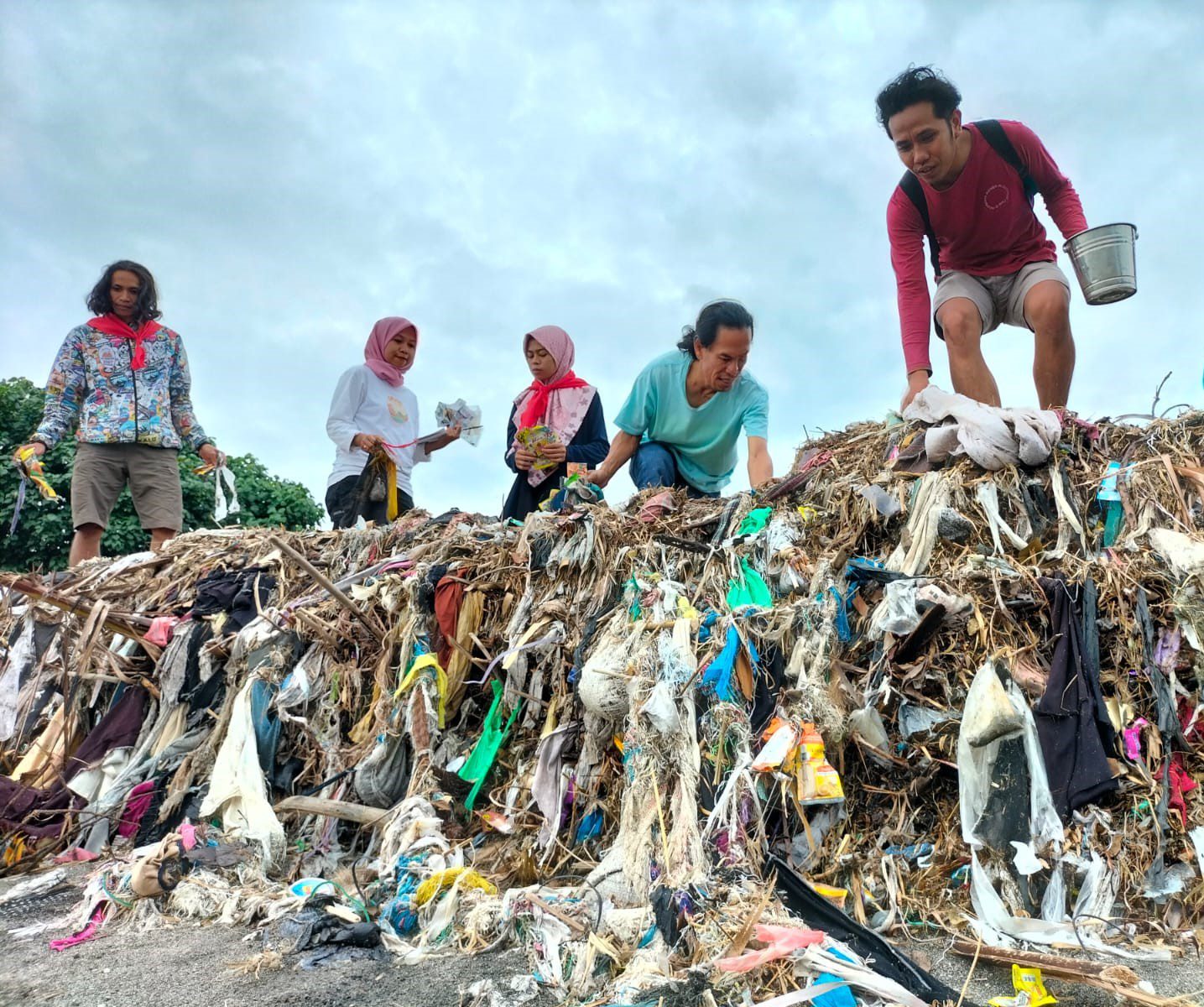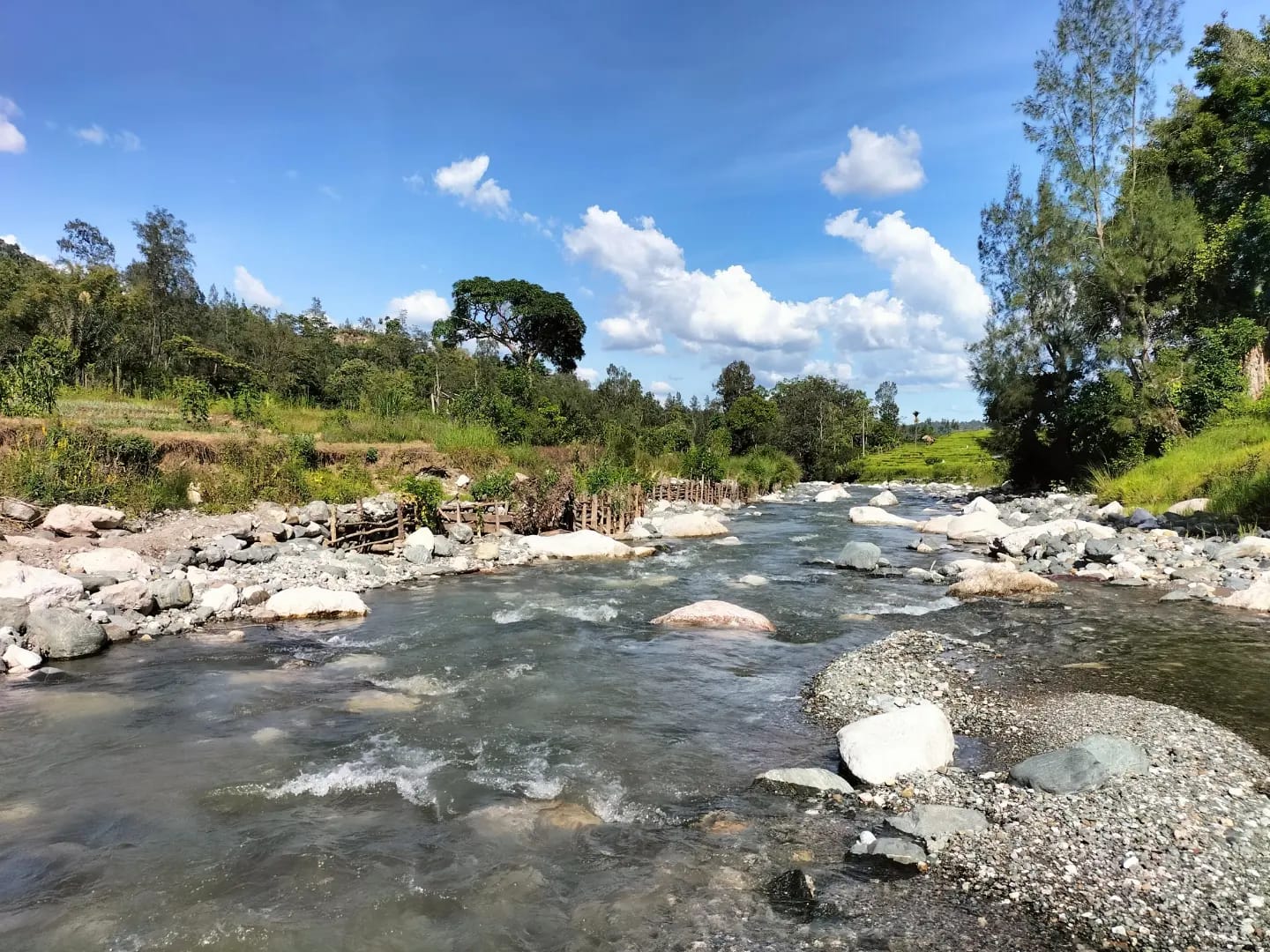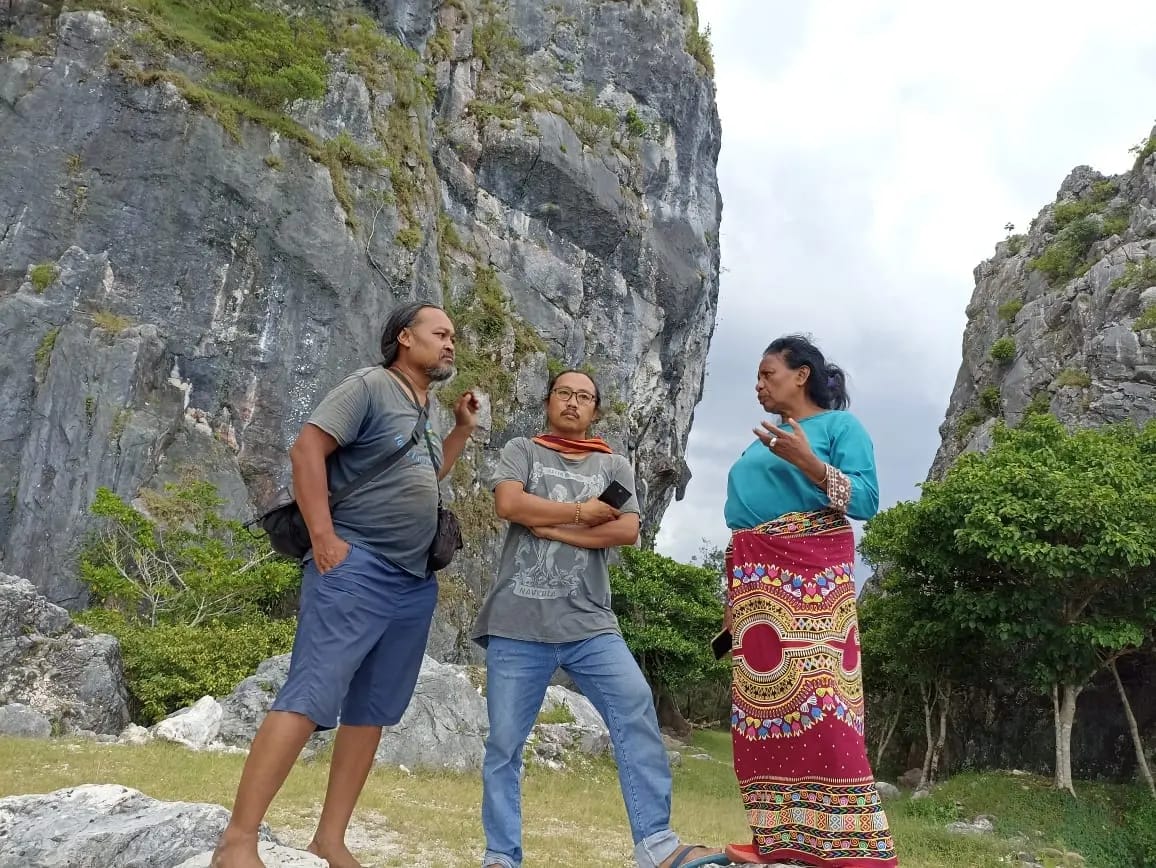Prigi Arisandi investigates microplastic contamination throughout Indonesia, riding a motorbike

-
Date:
26 Jan 2023 -
Author:
KEHATI

Foto : Ecoton
Prigi Arisandi and Nusantara River Expedition (NRE) team traveled throughout Indonesia on motorbike conducting river health studies. As a biologist and conservationist, he and his friend Amiruddin Mutaqin investigated microplastic pollution in 68 rivers. Apart from nitrates, nitrites, phosphates, chlorine, and heavy metals, Prigi stated that the key indicator they use is microplastic.
Prigi began his journey in Surabaya, traveled throughout Java, Sumatra, Sulawesi, Kalimantan, and Papua. This expedition aims to raise awareness of how vital rivers are to the survival of all living creatures.
“With this campaign we want the government to help us in maintaining and improving the quality of rivers”, said Prigi.
They are unable to trace all of the rivers because there are so many of them; Indonesia has approximately 4000 rivers. They decided to focus only on 68 rivers that play a strategic role in the country.

Tim ESN bertemu tokoh aktivis lingkungan Aleta Baun dari desa Mollo, Nusa Tenggara Timur (NTT). Aleta menerima penghargaan Yap Thiam Hien Award (YTHA) karena memperjuangkan desanya bebas dari penambangan marmer. (Foto: Ecoton)
East Java (636 particles/100 liters), North Sumatra (520 particles/100 liters), West Sumatra (508 particles/100 liters), Bangka Belitung (497 particles/100 liters), and Central Sulawesi (417 particles/100 liters) have the highest microplastic pollution, according to research results in 2022.
Nusantara River Expedition (NRE) is undertaken by ECOTON (Ecological Observation and Wetlands Conservation), a NGO that specializes in river conservation. In order to investigate wetland conservation, Prigi created this organization in 1996 at the University of Airlangga (UNAIR), Biology Study Program.
Prigi explained that plastic only degrades over time into tiny fragments, not totally decomposing. It first becomes microplastic less than 5 millimeters in size. After that, it is transformed into invisible nanoplastics that can only be seen with a microscope.
Both sea and river are threatened by microplastic. A single green mussel, for example, may contain 7 to 469 microplastic particles, according to Antara. Dr. Mufti Petala Patria, a marine biologist at FMIPA UI (Faculty of Math and Science, University of Indonesia), presented the findings of his research in Muara Kamal, Penjaringan, North Jakarta, in his paper as proof that microplastics pose a hazard to ecosystems and human health.
Rivers Turning Into Trash Depots.
Prigi documented the damaged state of the rivers he discovered in Java with photographs in the hopes that other rivers outside of Java would not suffer the same destruction.
Apart from Java island, Deli river in Medan, North Sumatra, is the most concerning river due to microplastic contamination. Both Barito and Mahakam rivers in Kalimantan are also quite problematic.
The NRE team and WALHI (The Indonesian Forum for Environment) observed that there are also problems in Lombok, West Nusa Tenggara. Rivers in Mataram city had been turned into trash depots. Trash builds up on the banks and in the river, such as sachets, plastic bags, styrofoam, baby diapers, and textile waste.
“We have Government Regulation No. 22 of 2021 ruling that all rivers must be free of waste, in fact almost all rivers (98%) actually become trash bins,” said Prigi.
The trip began on March 1, 2022, and it will conclude on March 4, 2023. The closure will take place in Wonosalam, Jombang, East Java, upstream of the Brantas River. At the closing ceremony, a Durian Festival themed “Return to the Roots” will take place.
The expedition’s theme is “Back to Roots,” according to Prigi, because managing rivers makes it seem as though we have been uprooted and that our culture has been forgotten. People are also sacrificing rivers in favor of practicality by turning forests into oil palm plantations, consuming plastic, and exploiting extraordinary mines, despite the fact that rivers are the mother of the earth.
NRE cautioned that biodiversity would be lost if river habitats were destroyed. Indonesia is the nation with the second-fastest rate of extinction of freshwater fish as a result of river pollution.
High amounts of chlorine, phosphate, and microplastics are caused by household garbage, which is primarily made of plastic waste. River inhabitants perish as a result of these three contaminants.
To encourage community engagement, KEHATI Foundation assisted in promoting this excursion activity. The government’s reaction to the mission was encouraging. The West Sumatra Governor and the Vice-Regent of Langsat both extended invitations to the NRE team. They also met with the DKI Jakarta Governor’s Environment Team and Deputy Governor of NTB.
According to Prigi, regional governments see the findings from this NRE activities as new information that serves as an early warning to rectify their regions.
(Written by: Armunanto)
